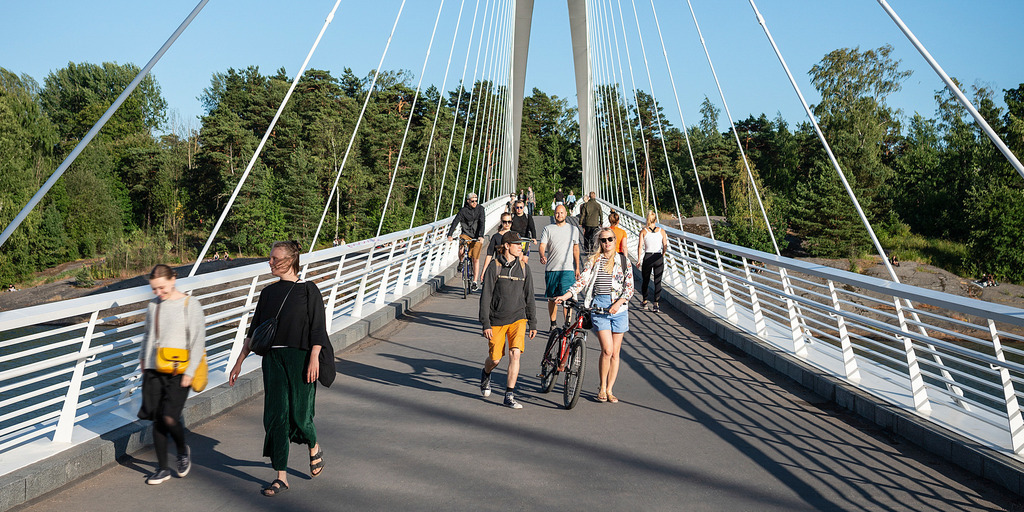

Prof. Dr. Daniela Schwarzer, Dr. Brigitte Mohn (Chairperson) and Wilhelm-Friedrich Uhr

© Axel Martens / Agentur Focus
People are at the heart of what we do. That's why some 330 employees work each day to ensure that everyone can participate – politically, economically and culturally – in an increasingly complex society. As a result, the Bertelsmann Stiftung's programs share knowledge, promote expertise and generate solutions.
The Bertelsmann Stiftung is a place where we look across political boundaries to the future, so we can develop new impulses for change.
Reinhard Mohn
Founder
Our organizational structure reflects our goals and principles. It ensures that we are able to fulfill, efficiently and transparently, the mandate laid out in our articles of incorporation. The work we do is grouped into programs, each of which is led by a member of our Executive Board. Our projects, in turn, are grouped by topic and activity within each program.


Prof. Dr. Daniela Schwarzer, Dr. Brigitte Mohn (Chairperson) and Wilhelm-Friedrich Uhr
The Board of Trustees serves as an advisory and controlling body, comparable to a supervisory board. It is made up of individuals who have demonstrated ongoing interest in the work of the foundation, as well as leadership experience and insight into social progress.
Over the more than 40 years of our existence, we have established a number of independent entities as partner organizations and subsidiaries. We support affiliated nonprofit institutions by contributing ideas and funding.
The Bertelsmann Stiftung’s headquarters have been located in Carl-Bertelsmann-Straße in Gütersloh since 1991.
The Bertelsmann Stiftung has had a permanent office in Berlin since October 2019. The newly constructed building is located at Werderscher Markt, close to the Federal Foreign Office and Humboldt Forum, in the historic center of the German capital. The new premises are available to the foundation’s employees who have work to attend to in Berlin. "Weisse Liste," a Bertelsmann Stiftung subsidiary, is also located in the new building.
The Bertelsmann Stiftung wants to use its new premises to promote and maintain its dialogue with partners and institutions in Berlin. The modern building offers space for workshops and discussions. The ground floor serves as a meeting place where guests can learn more about the history of the Bertelsmann Stiftung and the work it does. "Through our projects, we have been engaged on behalf of society for over 40 years," says Liz Mohn, former vice-chairwoman of the Bertelsmann Stiftung Executive Board. "We therefore have an ongoing dialogue with representatives of academia, civil society, business and politics. We want to use our new premises in Berlin to further develop our partnerships and cooperative projects in the capital. At the same time, Gütersloh is and will remain the Bertelsmann Stiftung’s primary location."
The Bertelsmann Stiftung's Brussels office was established in 2000. It is located in the heart of the city’s EU district, close to the European institutions. Our Brussels office promotes cross-border discussion of the challenges Europe and its citizens will soon face. We make the findings from our project work available to European institutions and to stakeholders, think tanks and the media.
The North American arm of the Bertelsmann Stiftung operates as a think tank addressing the challenges related to transatlantic cooperation. Headquartered in Washington, DC, it is widely consulted when German and European viewpoints are needed to understand international issues and inform the public debate. Focus areas include the impacts of globalization on both sides of the Atlantic.
Founded by Reinhard Mohn in 1995 and based in Barcelona, the Fundación Bertelsmann develops and carries out projects for promoting social change in Spain. As part of its efforts to improve the employment situation for the country’s young people, it currently supports the development of a twin-track work-study vocational training system and a career-guidance system that will make it easier for students to transition from school to work. Liz Mohn serves as the president of the foundation’s Board of Trustees, whose members include recognized political, business and social leaders.
Thanks to the Espacio, the Fundación has created a space in Madrid where the relevant social issues can be discussed and shaped, together with partners. Designed in 1992 by Enric Miralles and awarded the Madrid Architecture Prize, the building was for many years the cultural center that hosted Circulo de Lectores events. The building’s new name – Espacio Bertelsmann, Diálogo para un futuro major (Dialogue for a Better Future) – reflects its new activities and goals.
